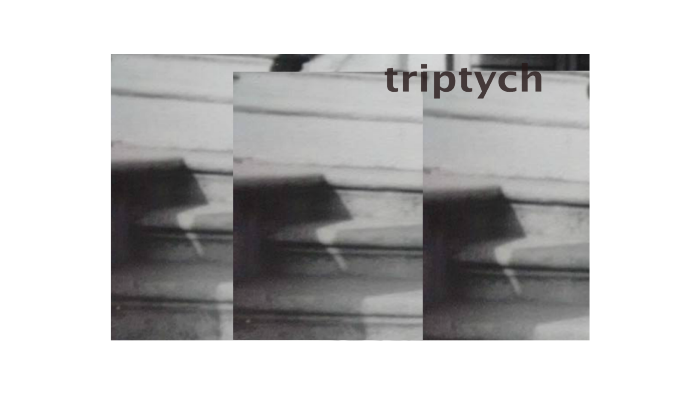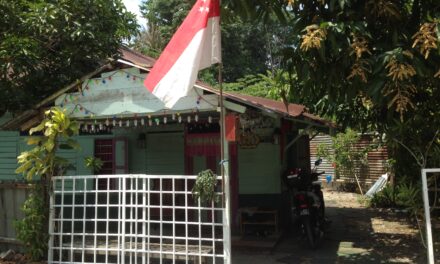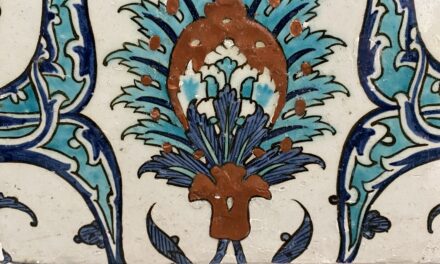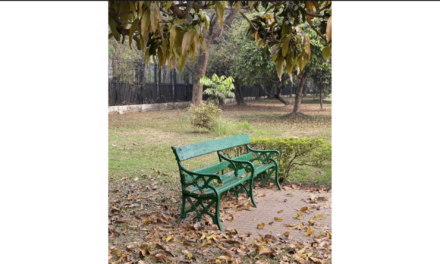The fan fell on Pishima’s head on Monday.
Everyone remembered it was a Monday because Shome was on a fast. Pishima always made fresh shondesh for Shome with chhana, the Bengali cottage cheese often made at home, and a little sugar when he fasted. She flavoured the shondesh with lemon juice sometimes, or plain new date jaggery if it was winter. Sometimes she added a segment or two of orange, after carefully removing the skin, pith, and seeds, of course. When the weather got warm, she sprinkled rose water on the smooth dough of chhana and sugar she’d made using the heel of her palm to gently, very gently, grind the cottage cheese, adding sugar lightly at the right moment to bring it to the right texture – one had to be careful so as not to let the oil separate from the cheese, then all would be lost. Joba would be sent off then to get rose petals from the single rose bush that grew by the side path which led to Bimal Ghosh’s house.
The side path was narrow and unpaved, a straggly ribbon of dull reddish brown earth; it had taken shape over the years as people from the neighbourhood used the “short cut” to go from the houses on the left to Bimal Ghosh’s house on the other side. The famous sweet shop, N. C. Dey & Grandsons Mishtanno Bhandar, was just beyond the Ghosh house; another oft visited destination.
Instead of walking out onto the road and going around the block, everyone used the strip of land by the kitchen and storeroom, next to which for some unknown reason, Korta Moshai had built two bedrooms. They belonged to Raja and Mauja now. Raja had got married recently, so thick full length curtains had been hung on the windows replacing the light half curtains that let more air in.
The reason was simple: while passing by, neighbours tended to stop and look in, have a little chat before carrying on. Now that Raja had a new wife, curiosity was high, you never knew who would peep in when. Pishima had told Notun Boudi – “new sister-in-law” as she was called by Raja’s siblings and cousins – to make sure the windows were shut when she was sleeping in the afternoon or Raja was in the room. One had to be careful.
Joba was going to be ten soon. She was the youngest in the home now, since Mita, who was a couple of years younger, had gone with her parents to live in their new flat in Ballygunge Place. Mita’s father, Joba’s uncle… her Mejo Jethu, had got a big promotion they said, and the company had given him a large flat to live in. Pishima called it “komepany koahtaar”; if Chhoto Kaku was around he always frowned and corrected her with an irate, “Company quarters, Pishima, company quarters!”
Joba had just been promoted herself, to class five in school. She felt important, almost grown up. She had waited long to be ten. It felt like a serious and good age. One you could be proud of. Shome Da was almost twenty, Baby Di and Buri Di were fifteen, Mauja Da, nineteen… Raja Da was married… that irritating Pinku Da was also twelve… but she still had to wait to be ten, she thought gloomily as she plucked a couple of roses. The petals were soft and dark red, their edges curly. Joba removed a few petals and held them to her nose. She bit into a petal and let her tongue run over the smooth surface. Why did Pishima put rose petals on the shondesh? Could you eat other flowers too? Joba’s mind strayed.
Sometimes she wished Pishima would not yell at her, and ask her nicely instead. It was always, “Ei Joba! Joba! Go get some roses!”, never did she get a, “Joba… Joba Ma, will you do something for me? Get me some roses…”, or, “Joba, are you busy? You must be… but will you do something for your old great aunt?” If she’d been older, would Pishima have treated her like that?
She glared at the rose, and then giggled. Joba picking roses, it struck her as very funny whenever she thought of it. Joba meant hibiscus. Hibiscus plucking roses? Joba smiled to herself. She remembered again why Ma had named her Joba. It was from a film called Sahib Bibi Aur Ghulam, in which Joba was a bold, educated Brahmo girl, and Ma loved her.
“Waheeda Rehman was the best Joba, even better than Anubha Gupta,” Ma always said. Anubha Gupta had acted in the original Bengali film, Ma preferred the Hindi remake.
A thought made Joba frown: would she, like the Joba in that film, also have to marry someone called Bhoothnath? Bhooth meant ghost. Joba was aghast. Then her face brightened, she was being silly. She was not going to marry ever, so why worry? She was about to heave a sigh of relief when she heard the noise.
It was a loud crashing noise. It made her gasp. Then she began to run, tripping over the little stones on the side path.
***
The fat grey cat squeezed in through the window grille and pounced on the fish.
In a blink, it raced out of the kitchen, a fresh gleaming silvery black Tangra hanging from its mouth, and disappeared down the back staircase. The cook, Orchona, screamed and ran after it, yelling, “Catch it! Catch it! Catch it!”
But she was no match for the fat cat.
“Oijjjah!” she exclaimed in defeat; perturbed, excited, and forlorn at once.
“What happened?” Thakuma asked from her room, where she was sitting on the floor, the wooden platform of her bñoti firmly pressed down under her crossed legs. Its curved sharp blade rose in an arc before her, on which she peeled and sliced and diced and finely julienned the vegetables for the day’s cooking. Thakuma was very particular about the shape and size of vegetables meant for different dishes. In a ghonto, you diced the potatoes; for a jhole, you had to cut them lengthwise and slender, straight along one edge and curving along the other, like elongated semi-circles; the vegetables for a chorchori had to be a little bigger than for chhñechki.
“O Ma!” Orchona came rushing to her room sounding, and looking, distraught, “That naughty tom cat, it ran away with a fish!” she wailed.
Thakuma raised her eyes slowly to the maid’s face. Her iris and pupil had a greyish, muddled look. She said it was cataract and refused to do anything about it. This was part of ageing, one had to live with it. She also said she couldn’t see anything clearly.
The grandchildren were tired of being asked who they were, to identify themselves. Thakuma apparently couldn’t make out. The other day she’d asked Baby who she was as she walked by, Baby had calmly replied, “Raja.”
Thakuma had mumbled under her breath and continued to chew on her softened betel nut with her toothless gums and said nothing.
“Huh, the fish?” she asked softly, peering at Orchona.
“Yes, Ma!” Orchona’s voice grew shriller, more anguished, almost devastated, “See, now! Boudi will scold me, but I promise you I’d just turned away for a second and that nasty greedy cat-”
Thakuma’s shoulders started shaking even before her low laughter could be heard. She sat there on the floor in her plain white saree – she’d never worn a saree with a border or prints or any colour since her husband passed away ten years ago – her slender, long, elegant fingers firmly grasping a head of cauliflower poised on the sharp blade of the bñoti, chuckling.
Orchona was not pleased. She was here for support from the grandmother before her daughter-in-law, who was in charge of the household, came shouting at her, accusing her of stealing fish.
“Very naughty that cat is… and so fat, you wonder how he runs so fast…” Thakuma said, shaking her head and still chortling. She’d given up eating fish the day her husband died.
“Was there roe in the Tangra? The season is here…” she asked as she neatly sliced the cauliflower head into two halves… she used to love fish.
Orchona sighed.
“Orchona?” Thakuma looked up suddenly again.
“Yes, Ma?” Orchona replied.
“Are those new gold earrings you’re wearing?”
Orchona sighed again. Who said the old lady couldn’t see?!
“Ei, who’s that?” Thakuma called out as Baby walked past the door.
“Mauja,” replied Baby.
***
The letter was signed, “Regards, Thief”.
“Iti, Chor”.
There had been a burglary in the house three nights ago. The house had five entrances, but the general consensus was that the thief had come in through the skylight over the windows in the outer gallery. Why a burglar should carefully discard all the five doors as a means of entry and choose such a path was of course a mystery, but Chhoto Kaku, the youngest of the uncles, was absolutely sure that was the case.
Chhoto Kaku was very intelligent, he knew how to get things done, everyone depended on him to solve matters that kept coming up and asked to be solved. These could pertain to problems with anything: thugs who lived in the bustee across the road; arbitrary demands for large “voluntary donations” for the now well known Durga Pujo in the para, the neighbourhood; extortionate corporation tax; leaking roof; caterers who had not served the lobsters of the size they’d promised; Bimal Ghosh parking his car without permission on the their land. Chhoto Kaku could manage any problem.
He was, one must reiterate, very intelligent. So what if he hadn’t got a gold medal like his eldest cousin; and it really didn’t matter how long he took to pass all his exams, he was a graduate still. “Pora shona”, the very act of studying and getting educated, was most important to the family. To Chhoto Kaku’s credit, he’d never given up as he failed to clear the treacherous hurdles of the Intermediate exams several times; about five, some say seven.
The thief must have been slight of stature, thin and acrobatic, Chhoto Kaku deduced perusing the skylight and checking for footprints on the shutters of the windows below. Everyone discussed the thief’s size, ability to contort his body, if he was young or old. Pinku piped up, “It might have been a girl thief!”
He was glared at by the elders. Chhoto Kakima, Chhoto Kaku’s wife, said in her colloquial coinage, “Become a wave!”
This meant, ebb away like a wave. There were sniggers. The kids stalked off, sulking.
The confabulations continued. There was no question, the chap must have been really small… how else could he have got in through that tiny space, and at that height? The windows were large but not the skylight. He was also clever, he must have sprayed some drug to make sure everyone slept right through. There were seven people sleeping on the various beds and mats on the floor that night. No one had woken up.
Where did he get the keys to the cupboard from? Surely not from under Boudi’s pillow where it was usually kept at night!
The eldest daughter-in-law of the house sat silent as the discussions swirled around her. The large old rosewood almirah in which she kept everything she owned practically, was still open, its hefty doors slightly ajar; the solid brass padlock hung from the ring on one of the doors, its steel shackle was unlocked. The key lay inserted in the keyhole, the entire bunch of keys swung from it. Her youngest brother-in-law – Chhoto Kaku to the children, Chhoto Thakurpo to her and her sisters-in-law – had insisted that nothing be touched till the police arrived. The police would be looking for clues and no one was to tamper with the evidence.
Tremors of excitement and trepidation rippled across the room at the mention of the Law and clues. Mejo Kakima’s eyes gleamed; she was addicted to mysteries, the short snappy ones with laconic, handsome heroes. But sensing danger, Mejo Kakima quickly lowered her eyelids and pulled the saree end covering her head a little lower. Good, Pishima hadn’t seen her. Then she wouldn’t hear the end of it.
Hiding behind the door, Pinku hadn’t been able to control the widening of his eyes, the quickening of his heartbeats. Clues?! Detective! Would he be like Felu Da or Byomkesh? Or maybe he’ll be older, with a funny moustache… Hercule Poirot! Why hadn’t someone burgled their house before?
Buri came running into the room. She was in a short navy skirt and a red and white checkered shirt tucked into the waistband; her hair was tousled and her skin looked flushed. She was also covered in sweat. She’d started rowing at the Lakes a few days back, and now during the holidays she went almost every morning for a lesson.
“What happened?? What happened… will someone tell me?” Buri looked around asking everyone at once.
“Burglary!” whimpered Shejo Kakima, and started weeping.
“There was a thief in the house!” declared Mejo Kaku, shaking his head.
“Hmmmh!” snapped Mejo Kakima, and turned away, displeasure marking her visage. Did Buri have to wear those minuscule skirts! And why rowing, why not yoga or badminton if she wanted to exercise? Boudi was too lenient with the twins… just because they’d lost their father…
Buri walked up to her mother sitting motionless on the bed, and touched her shoulder.
Moitreyi, the eldest daughter-in-law of the house, Boudi to almost everyone… Mauja, Baby, and Buri’s mother… sat still, thoughts racing.
She’d gone to the locker the week before. Mauja had got admission. She’d get the heavy gold necklace this time, it should fetch the money needed for Mauja’s college and hostel. Almost all her jewellery was gone by now. She didn’t mind. Who wore jewellery anyway.
For some reason, she’d felt terribly lonely that day.
The gold medal lay there in the cardboard box with a handful of earrings and bangles. Her husband’s gold medal.
She’d picked it up without thinking and brought it home.
Moitreyi at last let the thought utter itself in her mind. Had the thief found the gold medal?
It was Buri who came upon the letter, three days after the burglary. She was on her way to rowing class early in the morning, when she noticed a piece of paper tucked into the slot of the letter box next to the main door. It was a hastily folded scrap of paper; looked like it had been crumpled and then straightened out again. On it was scrawled in blue ball point pen:
“I bow at your feet, House Owner,
I came to steal from your house three nights ago. I wanted to let you know, I found your gold medal. It was very shiny and beautiful. A gold medal is a very important thing. Someone like me can never hold such a thing in his hands. Thank you for this opportunity.
I thought I should return it to you, but I am poor. I have sold it.
Countless thanks and please don’t leave the door at the back open, the one at the top of the stairs.
Regards, Thief”
***
it’s true, Pishima never spoke nicely to Joba. Pishima was actually Joba’s father’s aunt, her great aunt. The year India became independent, Pishima got married to a young, handsome soldier. Then Kashmir’s King Hari Singh asked Sardar Patel Ji and Pandit Nehru for help. The army was sent in, her husband had to go… he never came back. Pishima was only sixteen at the time, her father brought her back from her in-laws’ home, and she lived with her brothers and their families that day on. When Joba was a child, she’d had typhoid, and the doctors had almost given up. Pishima prayed day and night and promised Keshto Thakur, if he saved her little great niece, she’d give up all endearments for her, not show her love for Joba, ever again. Joba didn’t find out about this till much after Pishima had died.
No, the fan that fell on Pishima that Monday didn’t take her life. Her shoulder was injured, but it got well quite soon. Pishima, however, lost no opportunity to tell you all about the fan… quite a rare thing, how many could claim a whole fan, blades and all, had fallen on them and they’d survived the blow?
Everyone tried to get Thakuma to eat some Tangra fish, delightfully plump with roe. Why should she not eat what she loved to eat… just because her husband had died and she was a widow… would he do the same for her?… The grandchildren and younger daughter-in-law argued and pondered, and tried their best to persuade Thakuma.
But Thakuma laughed gently and said, “Okay, give my share to that naughty fat tom cat… it’ll be like I ate the fish…” and she continued to not see anything clearly; though some things, as Orchona grumbled, she could see only too well.
Moitreyi often got up in the middle of the night to check if all the five doors were locked, especially the one at the back. Chhoto Kaku though was quite sure the thief had lied, he had not entered the house through that door. “Have you seen the amount of mistakes in that thief’s spellings!” Chhoto Kaku would say, “And the grammar… ‘I pur… iIsalling gold maddal…’ nonsense! He used the skylight!”
…………………………………………….
In case you’re wondering, “Pishima” is father’s sister or cousin; the key word is “Pishi”; one can have “Bodo Pishi”, elder aunt; “Mejo Pishi”, the second most eldest aunt; and so on. “Dada/Da” denotes older brother or cousin, while “Didi/Di” is older sister or cousin. “Thakuma” is paternal grandmother. “Kaka/Kaku” is how you call your father’s brothers who’re younger than him; “Jethu” is for your father’s older brother. “Kakima” is the aunt married to the “Kaka/Kaku”; “Jethima” is “Jethu’s” wife. “Boudi”, pronounced bow-oo-di with the “d” soft, is how you address an older brother’s wife. In Bengali, there’s a word for every relationship, because I guess family and relationships are very important to us. Even third cousins can be close to one, I have a few. “Tangra”, Mystus tengara, is a beautiful fresh water fish, delicate and almost enlightening when cooked with mustard paste and lots of mustard oil, the taste of its roe clings to memory. “Shondesh”, Bengalis love sweets and make the most delicious ones; this one is usually made from “chhana,” which is somewhat like cottage cheese and flavoured in many ways, also the texture differs from shondesh to shondesh. If you’re ever in Kolkata during winter, do not miss “notun gurer shondesh”: shondesh made with fresh new date jaggery.
…………………………………





